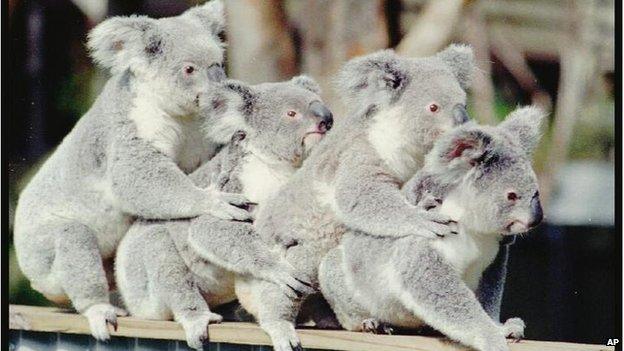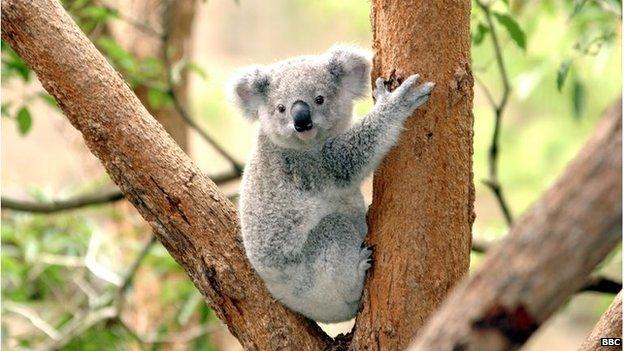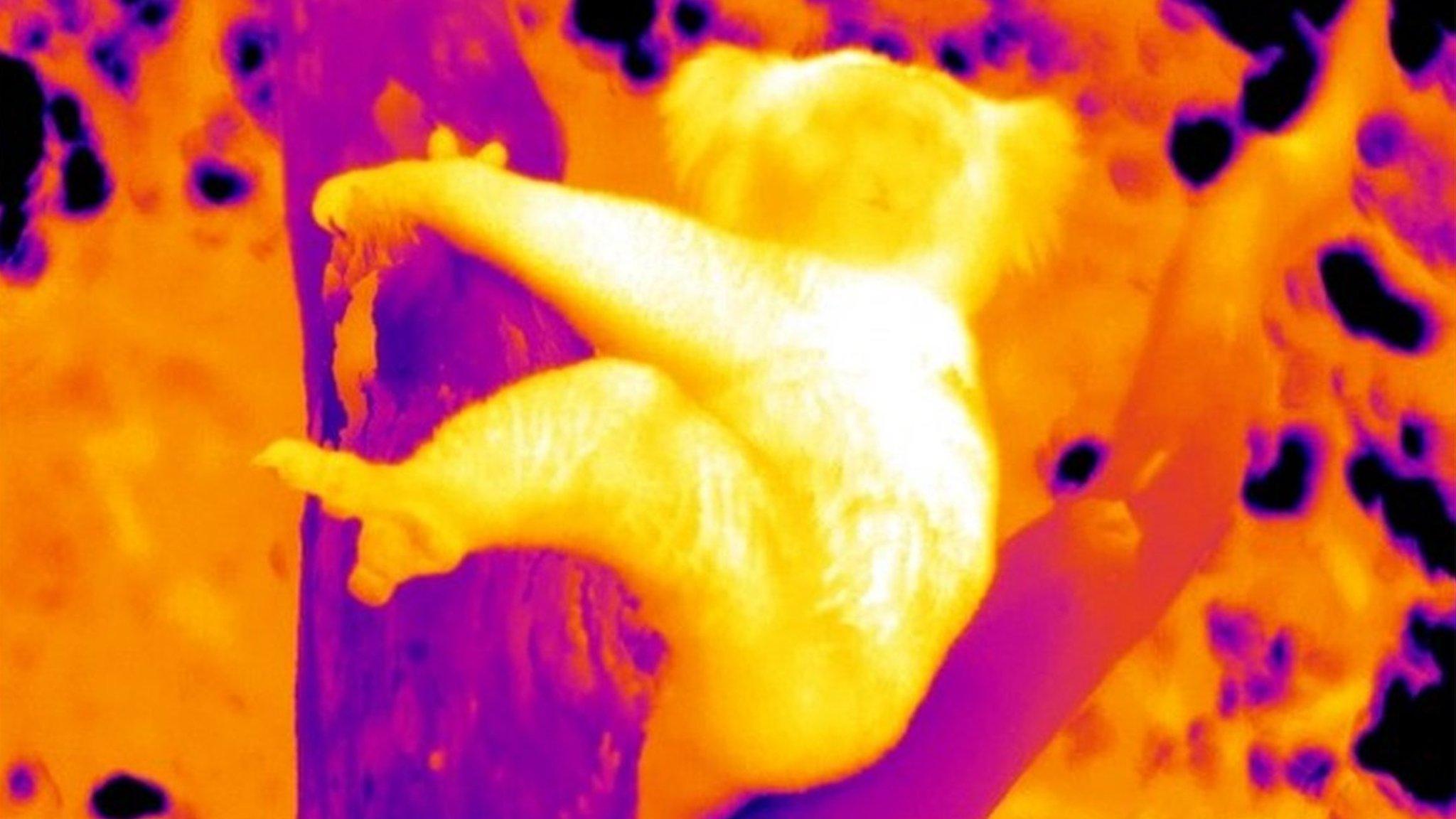Koalas in Australia's Victoria region could be culled
- Published

The Victorian government says Cape Otway koalas face starvation because of "overpopulation"
The state government of Victoria may soon cull a colony of koalas living in a popular Australian tourist destination.
The Victorian government euthanised about 700 koalas at Cape Otway in the state's south, in 2013 and 2014.
It said they were starving because of a population boom that could not be sustained by local woodland.
But critics angry with the latest move say the problem is too few trees, not too many koalas.
Despite some bush regrowth, the koala density at the cape remained high and sick koalas might be euthanised, the state government said on Monday.
Victorian Department of Environment, Land, Water & Planning said it would carry out a "koala health assessment" of the "overabundant koala population" in the Manna Gum woodland.
The assessment will be conducted by vets and animal health officers, said department spokesperson Mandy Watson.

Koalas will only eat the leaves of a few types of eucalyptus trees
"We are focusing our attention on private land in Cape Otway where koalas are most affected by over-browsing," she said.
"Any unhealthy koalas, which are deemed too sick to survive release, will be humanely euthanized to prevent further suffering," she said.
Development pressure
Koalas live in tall open eucalypt (gum tree) forests and will only eat a few of the hundreds of species of eucalypts that grow in Australia.
Australian Koala Foundation chief executive officer Deborah Tabart said the koala habitat should be protected so a cull is not necessary.
"I know they are not looking at planting trees, they are not looking at the long term," Ms Tabart told ABC TV.
"I never see this as an overpopulation of koalas; I see it as a under-population of trees."
In 2012, the koala was listed as "vulnerable" under Australia's Environmental Protection and Biodiversity Conservation Act.
However, there is no specific law that protects koala habitat, which is under pressure from housing and commercial development.
- Published4 June 2014

- Published30 January 2015
.jpg)